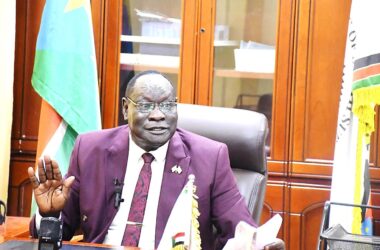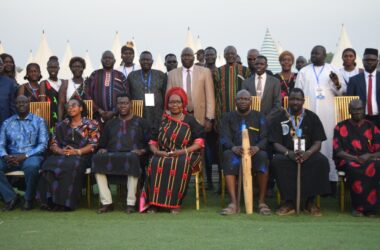By Lodu William Odiya
One Citizen Network for democracy has called for a fair access to the ongoing court proceedings of the trial of Dr. Riek Machar Teny and his political members.
In a statement issued by OCND yesterday, the call followed the denial of the independent Media in Covering the court proceeding and alleged assault of a Civil Society Activist respectively by the security personnel Concerned.
“The Commencement of the trial of the first Vice President, Dr Riek Machar Teny and seven (7) other accused SPLA-I0 Members this Moring by the Special Court, we have been Sufficiently informed of the denial of the call followed the denial of the independent Media in Covering the court proceeding and alleged assault of a Civil Society Activist respectively by the security personnel Concerned” the statement read.
Journalists from both local and international media houses were blocked at the gates of the Freedom Hall, as security officials enforced a directive allowing only journalists from the state-owned South Sudan Broadcasting Corporation (SSBC) inside the courtroom.
The statement underscored OCND applauded the government for allowing this live streaming of the proceeding for transparent and public opinion.
Furthermore, the statement noted that only public television, South Sudan Broadcasting Cooperation (SSBC), had been allowed to cover the proceeding, which is contrary to the gesture of transparency and public demand.
“We Condemn the deliberate side-lining of the Private Media and assault of the Civil Society Organization, we further appeal to uncensored coverage of the subsequently court proceeding by the accredited private media include radio stations, international media and also undeterred attendance of the public including civil Society Organization” statement partly read.
The restrictions on independent media access were seen as a violation of press freedom.
Article 24(1) of the South Sudan Transitional Constitution has granted the right to freedom of expression, reception, and dissemination of information, which includes access to information.
This constitutional right is further supported by the Right of Access to Information Act, 2013, which provides a framework for the public’s ability to obtain information from both public and private bodies.



